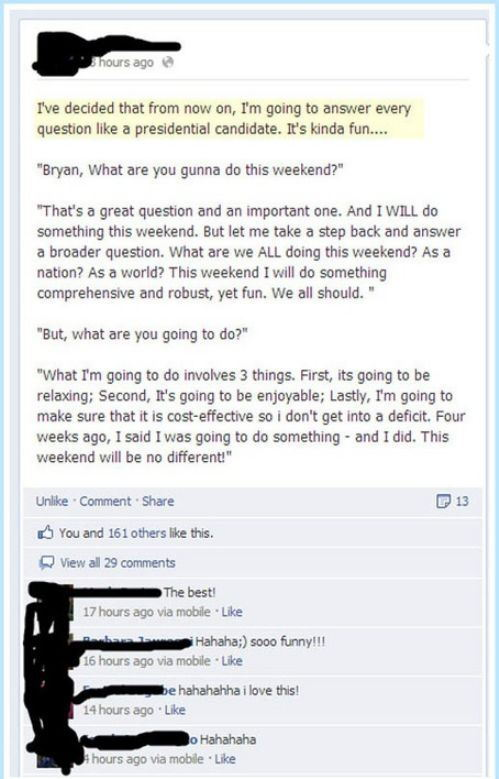The ‘revised’ stats for the first quarter of the report on the labor market are being – uh, MODIFIED.
Sharply downward.
I know, I know. That will come as SUCH a surprise to all of you.
Particularly the World Economic Forum (WEF), the reporters at CNN, and others.
Mark Judge has a nice piece in the Washington Examiner about American’s trust in the media, and the part he had to play in that change.
Why?
Well, the economy has been propped up by crony capitalism, government subsidies, and – uh, MISTATEMENTS/ERRONEOUS PROJECTIONS on financial reports (and, since ALL of those have to go before rigorous accounting oversight, let’s just say there’s a lot of accountants who are dupes and/or crooks).
Regular Americans – The Normals, as they have been called (or less nicely, The Deplorables) – have seen the handwriting on the wall. And, like their balance sheets, it is RED.
The nice – or not – thing about growing older is that we who do so have lived through multiple ups and downs in the economy. We’ve seen what politicians, bankers, and companies can do to our assets.
I’m old. I’m 72. And, my grandparents were born in 1895 and 1896. They lived long enough to pass on the stories about WWI, the Booming 20’s, The Depression, and WWII. My parents were adults during the post-WWII boom economy, the more sedate 50s, the Inflationary 60s and 70s (the inflation was whipped along by out of control government spending on entitlements, military purchases, and favored businesses). By the time Nixon came along, he caved in, and took us off the gold standard, thereby taking the lid off inflation – which burst forth like a pressurized gas.
I remember Stagflation – BOTH inflation, and heavy unemployment, with a dusting of OMZ-crazy rising interest rates.
Kids won’t know – it’s one of those outdated concepts in the Bible – but usury, which raises the interests to Mafia-level loan rates – used to be frowned upon. In Biblical days through much of the era of the Holy Roman Empire, it was both a sin, and a crime to charge more than state-permitted interest. It was made a crime because Jews didn’t follow the Christian prohibition on usury. It’s the practice that led to Jews being considered by many Christians as ‘money-grubbing’.
Now, that’s not really fair. The Jewish lenders would provide access to loans for those with poor credit/few assets. Naturally, as they were less likely to pay back the loan in full, the lenders set their rates high enough to offset the defaulters.
That’s not how the nations regarded it – they made it a crime, and were ruthless about exacting punishment for it.
In America, there were limits in every state to keep the interest rate from exceeding a certain level. Anything above that level could be CRIMINALLY prosecuted.
Now, the result of that is that getting a loan from a bank required assets, good credit, and the bankers reasoned assessment that, yes, you were likely to pay the loan back. Those new in town had difficulty getting credit, those without a lengthy job history in town, and those without any property (house or paid for car). Women, as few of them had regular access to money of their own, were generally denied credit. Contrary to what is said about the credit situation back then, if a woman had money of her own, under her control, she could get access to credit. Married women couldn’t count on it, particularly if their husband were feckless with finances.
MOST people rented their houses in the early years of their career, and often beyond. It was only the introduction of the GI Bill that permitted most of the vets to buy a STARTER home (a starter home was one that was TINY – often only 2 bedrooms and ONE bath, with a dinky yard). It was expected that such a home would accumulate equity, and provide the basis for moving to a larger house, or, if possible, adding onto the the house’s space (usually remodeling the attic or basement space for more bedrooms or family rooms). I was in my teens before I had a friend whose family had more than 1 bathroom.
As a result of frugal living, and with that boon of access to a starter home, many of the Boomer’s parents retired with a nice set of assets. That skyrocketed during the inflationary 70s, and again during the 80s, when home prices appreciated beyond all previous experience. My parents’ family home quadrupled in value, leaving them sufficient money to have a lengthy retirement.
I just checked on Zillow – the current value for my family’s former home is SEVENTEEN times what my parents paid for it!
And, they bought it at 4% interest, with $0 money down. Today’s interest rates are 7.5% and above, with a substantial down payment required.
It’s not that older people were financial geniuses, the system was one in which the average person pretty much had to be an idiot to NOT accumulate wealth. (I do realize that some categories of people – minorities, the disabled, and agriculture workers – did not have many of these opportunities).
It’s a toss of the dice. Sometimes, you get a good outcome.
Sometimes, it’s snake eyes.
My grandparents started out their marriage very well situated. My grandfather was a highly skilled welder, who owned his own profitable business. My grandmother came from a wealthy family. They employed a maid in their home, vacationed along the nicer beach resorts, and my grandmother had SEVERAL mink coats.
Then came the depression. My grandfather trusted a friend in trouble, and ended up going bankrupt when his friend defaulted on that loan. They were forced to sell nearly everything.
My grandmother pawned her very large diamond ring for $500, which she used for a down payment on a house with a garage in back. My grandfather picked up welding jobs, and she started a restaurant in her home.
They managed. They were frugal, and eventually were able to move on to a better home. They paid off that home, and used savings to buy a Florida home in Orlando.
When 3 bedroom homes with 1/2 acre of land were $2000.
Yeah, they hit the jackpot, purely from Walt Disney’s plan to build Disney World there. Most of the rest of the family relocated there, and profited from Orlando’s growth.
My husband and I bought our first home at 10% interest. We basically broke even when we had to move for work. Didn’t make that much over cost with our next two homes, either.
We did, however, manage to – FINALLY – do MUCH better than break even with the last home sale. How did we do that? Some of it was luck and timing. But, more importantly, WE BOUGHT A HOME THAT WAS CONSIDERABLY LESS THAN WE WERE PRE-QUALIFIED TO BUY.
Too many people are in far more debt than they can afford. It only works if EVERYTHING goes perfectly.
Which it never does.
And, when the house of cards is hit by a light breeze, it collapses.
So, the FIRST rule is:
Reduce your debt – use the Dave Ramsey method to pay off ALL consumer debt. If your home is too expensive to manage, should you hit a crisis, sell it. Even if you have to take a bit of a loss. Better to lose a little money now, then make it up in lower housing costs, than to frantically attempt to stave off bankruptcy after the crisis.
I know I’m speaking to the choir here. Most of you already are prepping, hunkering down, stashing away money in assorted places, and living the life of someone who KNOWS the rain is coming. Don’t forget to pass along these warnings to your kids, your neighbors, and your colleagues at work.
After that, you can rest easy, knowing that you – like Noah – gave them fair warning.






















